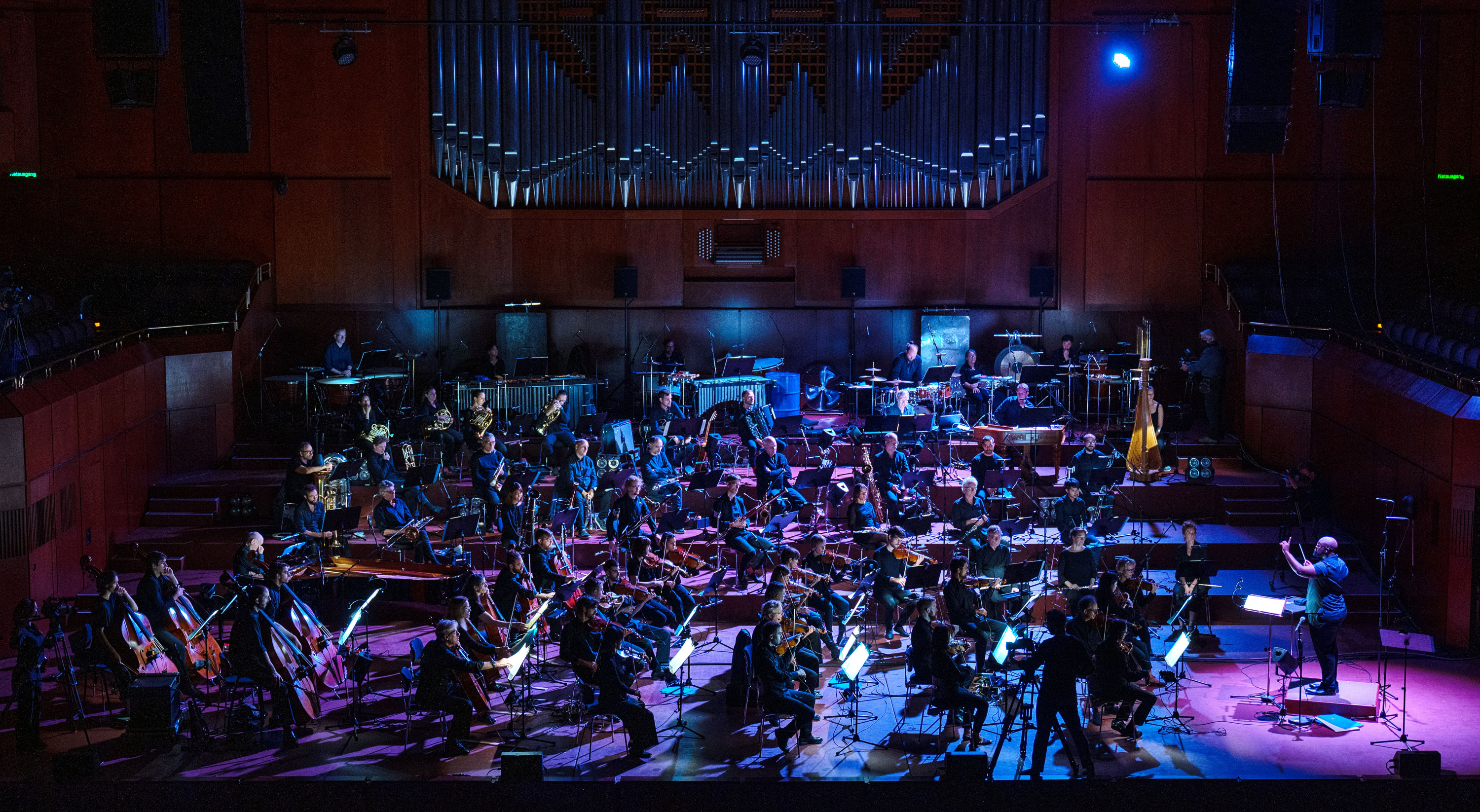Heiner Goebbels
A House of Call – My Imaginary Notebook
novembernov 25
Direction Vimbayi Kaziboni. Lighting design Heiner Goebbels, Hendrik Borowski. Sound design Norbert Ommer.
Ensemble Modern Orchestra.
Commissioned by the Ensemble Modern Orchestra ; Berliner Festspiele – Musikfest Berlin ; Kölner Philharmonie ; beuys2021 ; Elbphilharmonie Hamburg ; musica viva – Bayerischer Rundfunk ; Wien Modern ; Casa da Música Porto
The Philharmonie de Paris and the Festival d’Automne à Paris co-creates this concert.
Heiner Goebbels in Classic & Co
To listen on France Inter
Lecture Une esthétique de l'absence
Monday 25 November, 6.30pm, lecture by Heiner Goebbels in the Philharmonie conference room.
See more
With the support of

A House of Call, a vast, lavishing, Babylonian imaginary notebook of Heiner Goebbels' travels around the world, is a sum total of sounds, styles, languages, cultures and voices. It brings us the voices of the living and the dead, recorded over the course of just over a century. Its orchestra responds to the grains of these voices, thereby renewing a centuries-old tradition of responsorial art.
In Finnegans Wake by James Joyce, a few lines after the word roaratorio, which gave its title to a radio work by John Cage dear to Heiner Goebbels, we read the following expression: "a prolonged visit to a house of call." A House of Call is a cycle of calls and invocations. It is divided up into four parts: “Rock paper scissors”, “Grain of the voice”, “Wax and violence”, and “What when words gone”. In this ritual or garden of unique voices, at the intersection between song and language, we listen to Heiner Müller reading his play Tractor and the philosopher and musicologist Carl Stumpf, founder of the Berliner Phonogramm-Archiv. A wealth of recordings on wax phonograph cylinders builds up there, along with their ambivalent origins and motivations, ranging from authentic musical research to colonial testimony. Heiner Goebbels works with these contradictions, in the form of an Armenian female singer in Paris in the 1910s, or, shortly after, Georgian soldiers imprisoned in the Mannheim camp. To ad infinitum effect, the music fixes in place the aura of these voices, their history and the timbre of their recording.
Interview with Heiner Goebbels, George Benjamin & Jérôme Combier
In the same place

